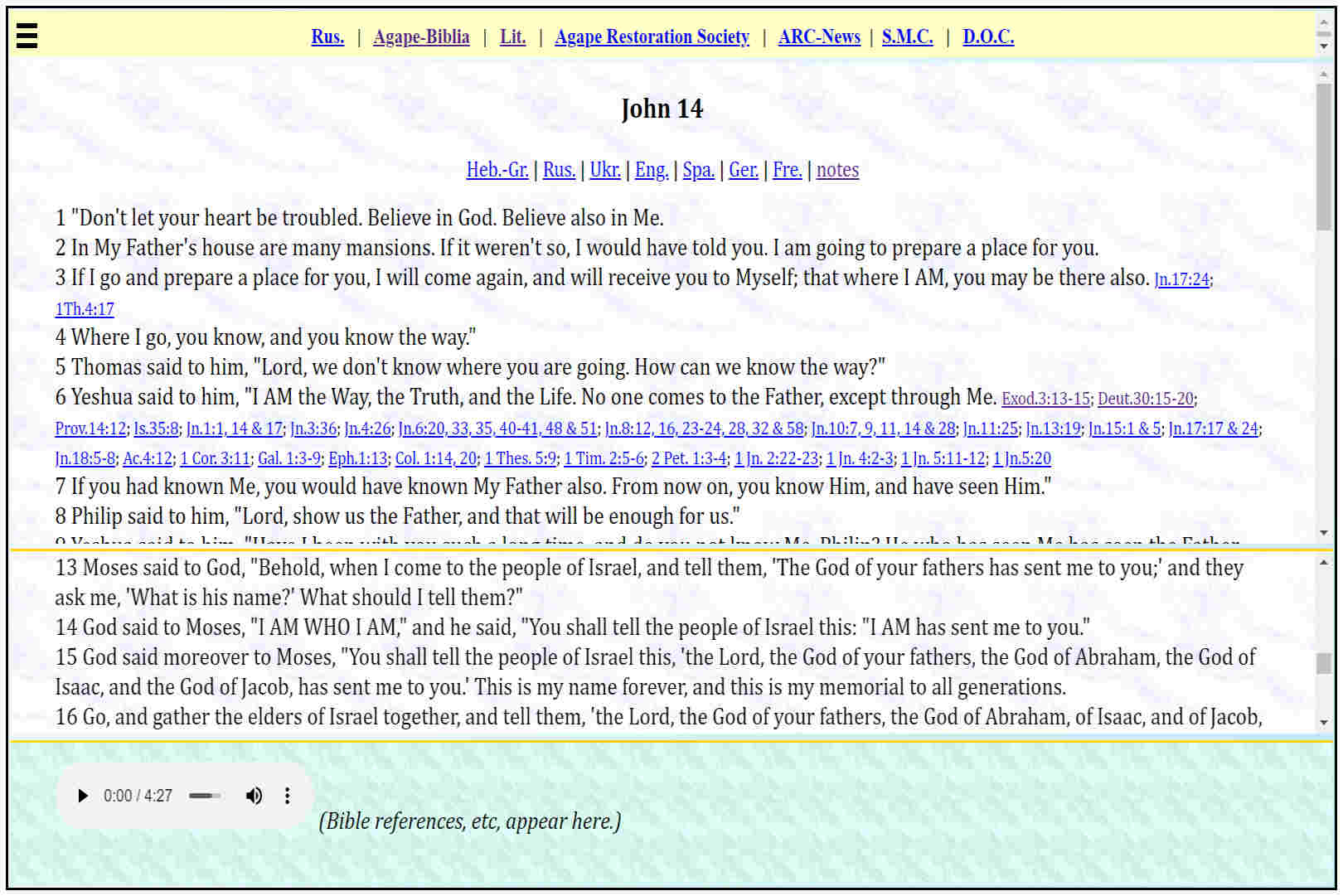In John's Gospel, there are several places where Jesus Christ / Yeshua the Messiah identifies Himself as the "I AM – the Way, the Truth, and the Life": see all of the cross-references for John 14:6 - these references, over 30 of them, illustrate that He is the I AM, the only Way to the Father, the absolute Truth, and the infinite Life, the Source of eternal life for us human beings – "no one comes to the Father except through Me" and in Acts 4:12 – "There is salvation in none other, for neither is there any other name under heaven, that is given among men, by which we must be saved!" There are also dozens of "I AM" statements in the rest of the New Testament.
Brahman, one of the chief Hindu gods among India's Pantheon of gods, brings to our minds the idea of pluralism, inclusivism, and toleration: are there various paths to the divine? In my reading of Genesis, Deuteronomy, and Exodus, I've been reminded of Melchizedek and Balaam, two men who had some sort of contact with the true God. Melchizedek was king of (Jeru)Salem and blessed Abraham after the latter's victory over five pagan kings. And yet, Jerusalem was later captured and the Jebusite inhabitants were killed by the Israelites because of the former's pagan cultic prostitution, polyamory, and child sacrifice.
Later, the pagan prophet Balaam was asked by Balak, another pagan king, to curse the Israelites but God told him to bless them instead. And yet, Balaam later "did an end run" around Israel by getting the Israel soldiers to fornicate with the pagan women; thus, Balaam was cursed and killed (Joshua 13:22). So there are a few pagan characters in the Bible who seemed to have some access to the true God but they didn't get it quite right. Our rational human nature includes the ability to make decisions, the freedom to choose. Choosing to love the one true God or many false gods, however, has consequences – "I have set before you life and death, the blessing and the curse: therefore choose life, that you may live, you and your descendants" (Deut. 30:19b).
This illustrates the basic problem of paganism or polytheism: the way people view the world (their "Weltanschauung" – worldview) determines the way they live: what people really believe is how they will behave. Polytheism breeds polyamory, that is, homosexual acts, polygamy, and polyandry, which in turn breed unwanted children – abortion and child sacrifice. In addition, Hinduism originated the problem of infinite regression - "turtles all the way down." To posit that the world is supported on an infinite stack of turtles (or elephants) is expressed in modern terms by positing that life on earth was seeded by extraterrestrials: so what seeded the extraterrestrials? Or the more modern idea of "multiverses" – multiple universes (a contradiction in terms - "uni" means "one") or a series of "Big Bangs" – other infinite regression fallacies.
To many ancient philosophers and modern physicists, the universe has seemed to be infinite (God), but although it is really, really big, we can measure it in terms of time (about 13.8 billion years) and observable lightyears of distance (about 93 billion light years across); thus, it is not infinite. If you can measure a thing, it is not infinite. The physicist who came up with the "Big Bang" theory was at first ridiculed by other physicists because he was a Belgian Catholic priest, a religious person. But when the other physicists repeated his calculations, they discovered that he was right: there has been just one "Big Bang," no infinite regression. So we are brought to the concept of the uncaused Cause, One Infinite and Absolute Being without beginning – a confirmation of monotheism.
God has revealed Himself in the flesh (incarnate) in Jesus as the "I AM" – the verb "to be" without a predicate. When I say that I am a man and my wife is a woman, this means that I am not a woman and she is not a man: these predicates limit who and what we are. But the "I AM" has no predicate, He is unlimited and infinite, He can't be defined or described. And yet, He took on a human body and human nature so that we could see, hear, and touch Him. Read chapter 3 of "On the Incarnation of the Word" by St. Athanasius of Alexandria, the man who led the charge against Arianism.
Arianism taught that Jesus was a created being, a prophet or moral teacher, but not God incarnate: Islam and humanism/rationalism are more recent versions of this heresy. Rationality is God-given, but rationalism is the ideology that only what we can perceive with our senses and rationally understand is all that exists. However, physicists today admit that about 95% of the universe is "Dark Matter or Dark Energy" that we can't perceive or understand. How, then, can an atheist/materialist conclude that God doesn't exist because he can't find Him, when he doesn't even remember where he put his car keys or doesn’t know the contents of his neighbor's garage?
Christianity is the belief in one absolute and infinite God, thus it is exclusive, not inclusive. And Christianity gives us a rational reason to love your neighbor as yourself, to care for "the poor, the lame, the maimed, and the blind." Otherwise, it's survival of the fittest, and sooner or later each of us will be in that group of the unfit. Yes, There Only One Way to God! To some people today, that may sound narrow-minded, bigoted, or even hate speech. But if it's true, then we need to pay attention to it!
Here's how YOU can get free info about our planned Agape Restoration Communities:

 Is There Only One Way to God?
Is There Only One Way to God?